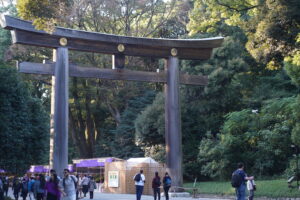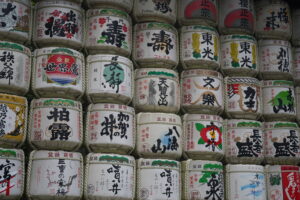Meiji Shrine (Meiji Jingu) is a Shinto shrine located in Shibuya, Tokyo, dedicated to Emperor Meiji and his wife, Empress Shoken. Established in 1920, eight years after the Emperor’s death, it was built to honor the memory and accomplishments of Emperor Meiji, who played a key role in the modernization of Japan during the Meiji era (1868-1912).

The shrine is set in a vast and tranquil forest, offering a peaceful retreat from the bustling city of Tokyo. Visitors can walk along the serene tree-lined path leading to the main hall, a space where they can experience the harmony of nature and spirituality. The shrine’s expansive grounds are home to various facilities, including the Meiji Jingu Museum, which showcases a collection of historical artifacts and exhibitions related to the Emperor and Empress.

One of the most famous aspects of Meiji Shrine is its cultural significance. It holds various seasonal events and festivals, with the New Year’s visit (Hatsumode) being particularly popular, attracting millions of people every year. The peaceful and spiritual atmosphere of Meiji Shrine makes it a symbol of Japanese tradition, history, and respect for the imperial family.